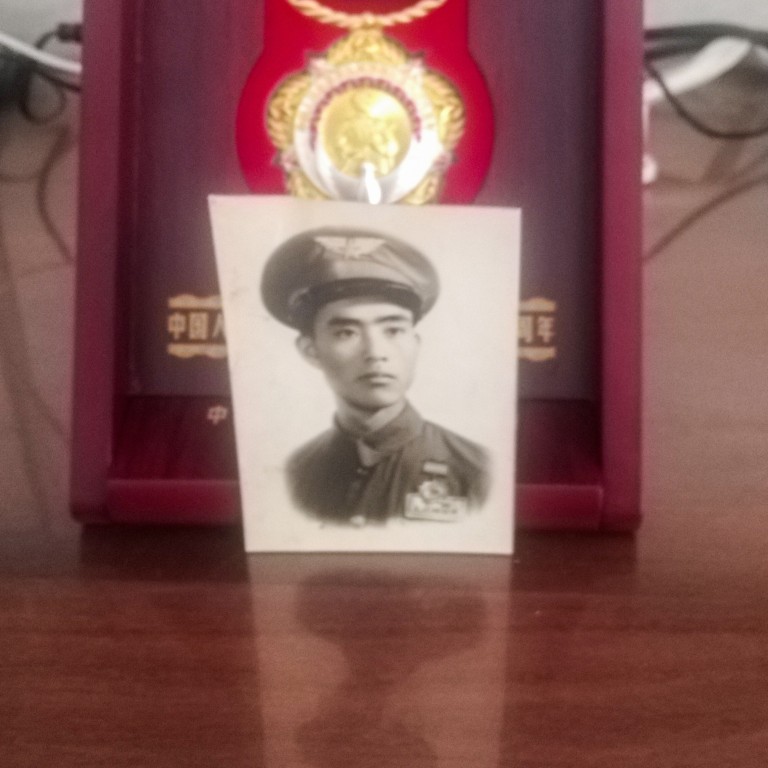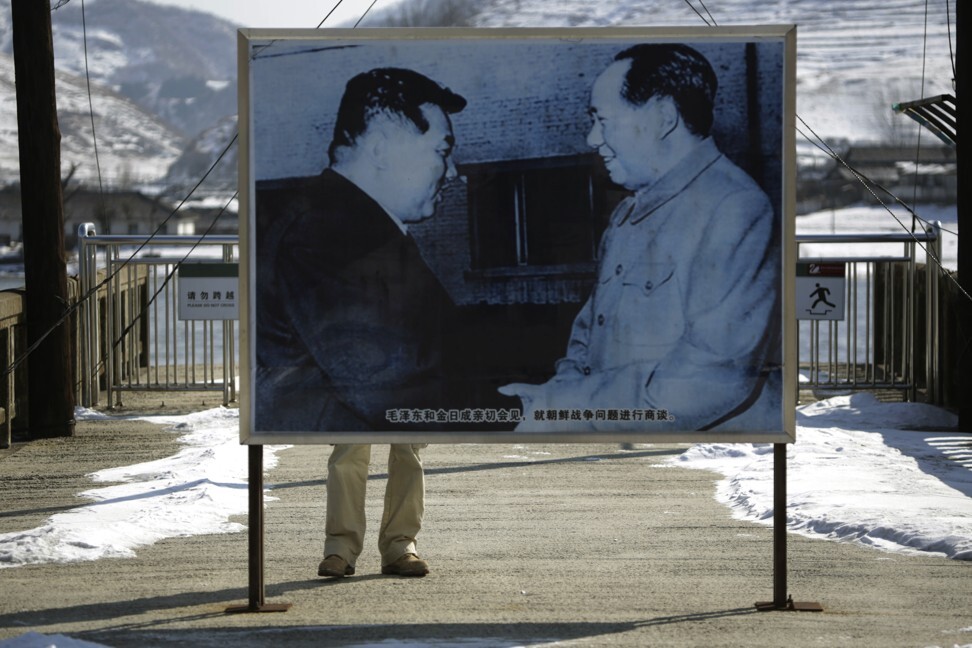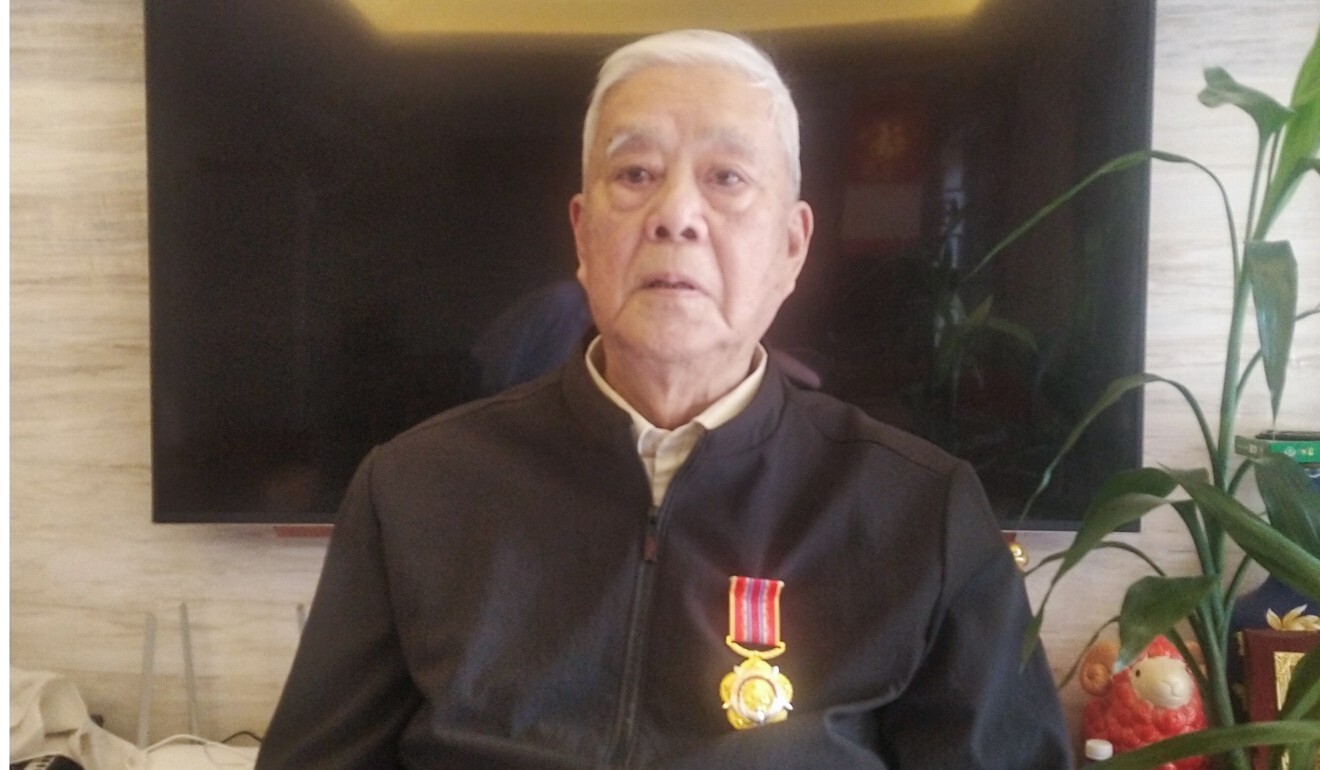
How Korean war memories in China fuel desire to take Taiwan 70 years on
- Elderly Chinese war veterans remain bitter Mao’s plan to take the island back was interrupted
- The Chinese Communist Party used Taiwan issue as the main justification for taking part in the Korean war
On a day in early October, 1950, when cool autumn winds had just began blowing over China’s southeastern Fujian province, then 18-year-old Wang Yushu, a soldier based in Quanzhou, was ordered to take his cotton-padded military coat and head to the chilly northeast immediately.
Everybody in the troupe was a native speaker of Hokkien, a dialect shared by more than 70 per cent of the population in Taiwan, and their focus was on the mission to “liberate” Taiwan.
“My group was supposed to cross the Taiwan Strait … but the outbreak of the Korean war had halted the plan,” Wang said.
Seven decades later, the Korean war might be over but the plan to cross the strait remains unrealised, much to the bitterness of elderly veterans like Wang, Cold War specialists and historians say.
At the time, the United States had decided not to take sides in the Chinese civil war, promising to not intervene if conflict erupted.
But that all changed after June 25, 1950, when Kim Il-sung’s Korean People’s Army invaded southern Korea and occupied Seoul with covert support from the former Soviet Union.
The move prompted the American-led United Nation Command forces to deploy troops to the peninsula.
Two days later, fearing that soviet influence would also extend to Taiwan if it was taken by the communists, then US president Harry Truman deployed the US 7th Fleet to the Taiwan Strait, stopping Mao and Chiang from attacking each other.
How the Korean peninsula was divided
Infuriated, Mao threw China’s support behind Kim, putting the Taiwan mission on hold, according to Shen Zhihua, a professor of history at East China Normal University.
“In the eyes of Mao Zedong, ‘liberating Taiwan’ was the last big [historic] deal he could do in the rest of his life,” Shen wrote in his book Mao, Stalin and the Korean War.
“The intrusion of the US 7th Fleet [in the strait] deprived the PLA’s legitimacy to liberate Taiwan, as well blocked their way to land on the island … such a move ignited Mao’s anti-American anger.”

In response, the Communist Party launched patriotic nationwide propaganda and education activities centring on “hatred, contempt and disdain” against the US, or the “three views campaign” in all schools. More young people joined the People’s Volunteer Army (PVA) to take part in the “war to resist America and aid Korea”.
Among them was Guangzhou-based Huang Zhao, then aged 15, who joined the PVA air force in 1951 and became a telegraph operator.
“I joined the air force because I was very angry when I realised the US was entering our Taiwan Strait,” Huang, 85, said.
Another was Sichuan student Zhang Zeshi, then 21, who abandoned his physics studies at Tsinghua University in Beijing and led a group of teenage secondary students to fight on the front line of the Korean battlefield.
By the time the 33-month conflict was over, more than 400,000 Chinese soldiers had been killed or wounded. Some 25,600 were missing, including 21,000 PVA troops who became prisoners of war, historian and PLA Major General Xu Yan, wrote in Korean War – In the View of Cost-Effectiveness.

Zhang was a prisoner of war in the south when Chiang sent a group of political officers to infiltrate and successfully turn two-thirds of Zhang’s comrades-in-arms into “anti-communist heroes”.
After returning to Beijing in 1954, Zhang, an English translator and negotiator for the PVA, was classified as a “betrayer”, dismissed from the PLA and expelled by the party. It was not until 1981 that he was rehabilitated.
The struggle over Taiwan remains a central issue in his reflections of the Korean conflict.
In 2013, Zhang wrote an article, saying he felt relieved after realising the Korean war had avoided “a fratricidal fight” between Chinese people on the mainland and in Taiwan.
“The Taiwan-independence-leaning forces even take Japanese and Americans as their kinsfolk, and see [mainland] Chinese as foes. In such a circumstance, the cross-strait war will not be a fratricidal fight between siblings now,” Zhang said.
“Once the central leadership gives the order, all veterans and active servicemen and women will listen to the central government to take Taiwan back once they decide to do it,” Huang said.
Korean war shows how underdog China can win against US: Chinese general
But Macau-based military observer Antony Wong Tong said the mainland might overestimate the PLA’s combat strength and underestimate Taiwan’s defences.
“In today’s modern war, the US doesn’t need to directly intervene in the cross-strait war, but provide military support to Taipei, including a share of electronic interference technology and satellite intelligence,” Wong said.
“No one could predict any consequences of a war … Kim also expected the US would not intervene in his civil war with the south when he triggered the Korean war … but what happened later on?”
Zhao Ma, a Korean war expert at Washington University in St Louis, said from the wartime until now, the Communist Party had highlighted the Taiwan issue as the core reason to justify the PVA’s participation in the Korean war.
“The propaganda campaigns focus on opposing Taiwan independence and [the PLA] will not give up using force for reunification. It has reached political consensus and taking back Taiwan has become a core task from generation to generation on the mainland,” Ma said.
Washington and Taipei have strengthened diplomatic ties after US President Donald Trump’s administration passed the Taiwan Travel Act in 2018 to bolster exchanges of high-level officials, as well as push the sale of more advanced and large-weapon systems to Taipei.
Military observers have warned that more intense encounters between the PLA and Taiwanese military would also increase the risk of military conflicts, which might lead to war.
“It’s very dangerous when both sides’ hostilities are soaring, especially [when] the mainland’s anti-Taiwan independence sentiment is stronger amid their patriotic education,” said Andrei Chang, the founder of the influential military magazine Kanwa Asian Defence.
“Compared with his predecessors, Chinese President Xi Jinping is keen on accomplishing Mao’s desire to take Taiwan back,” he said.

